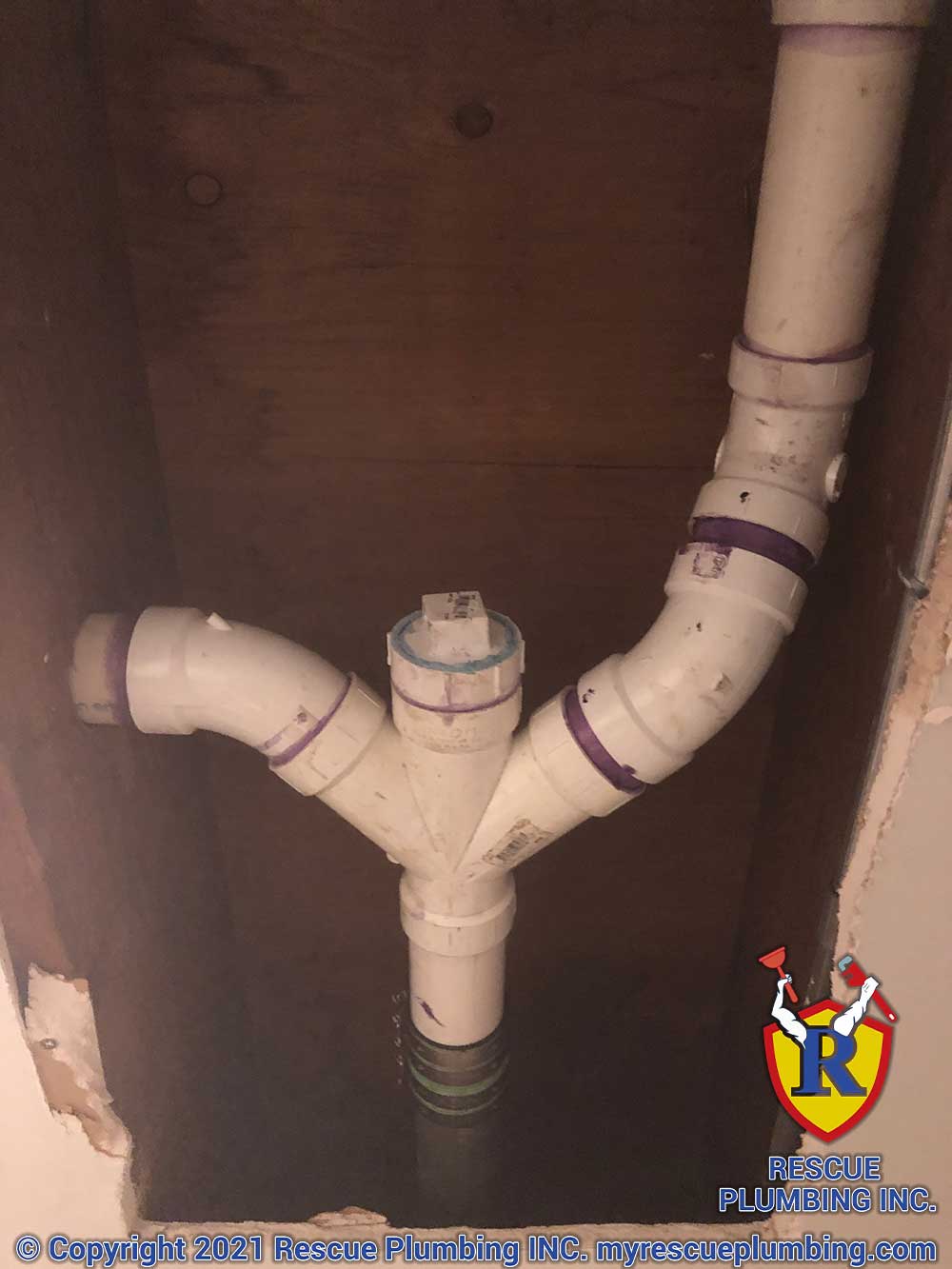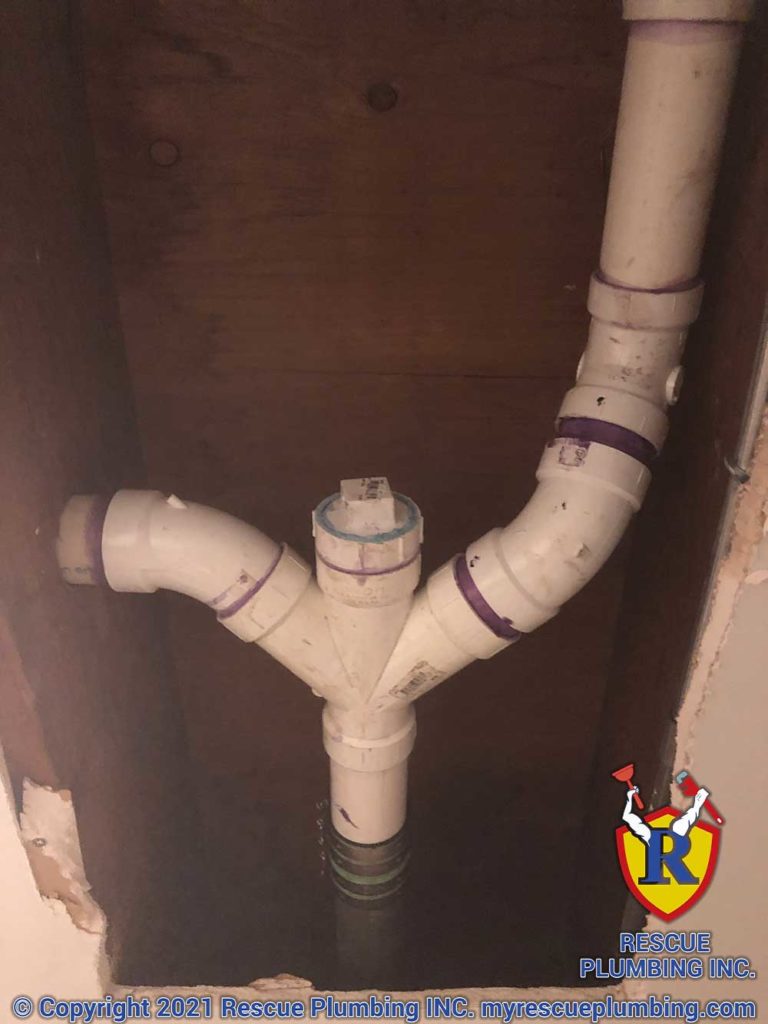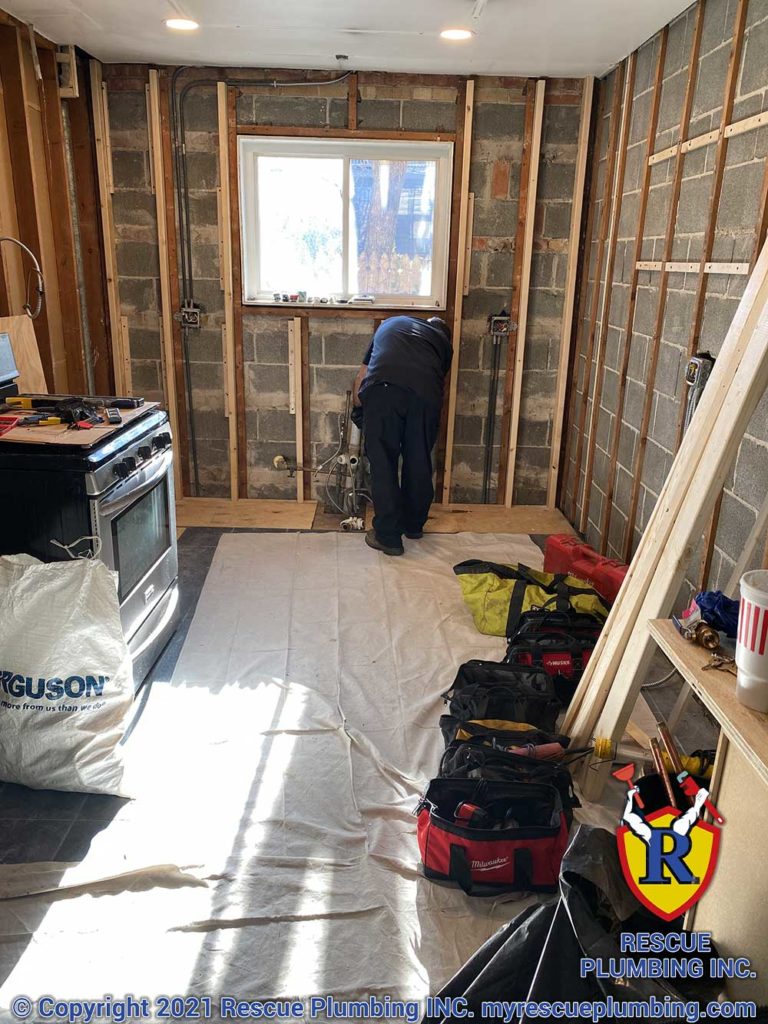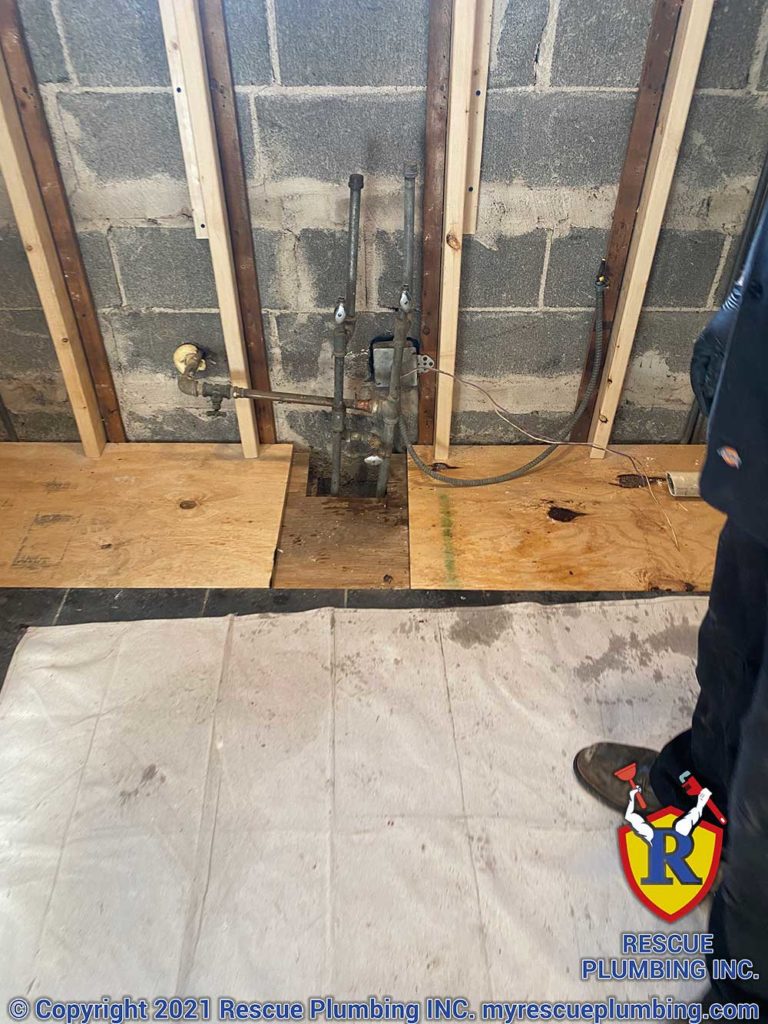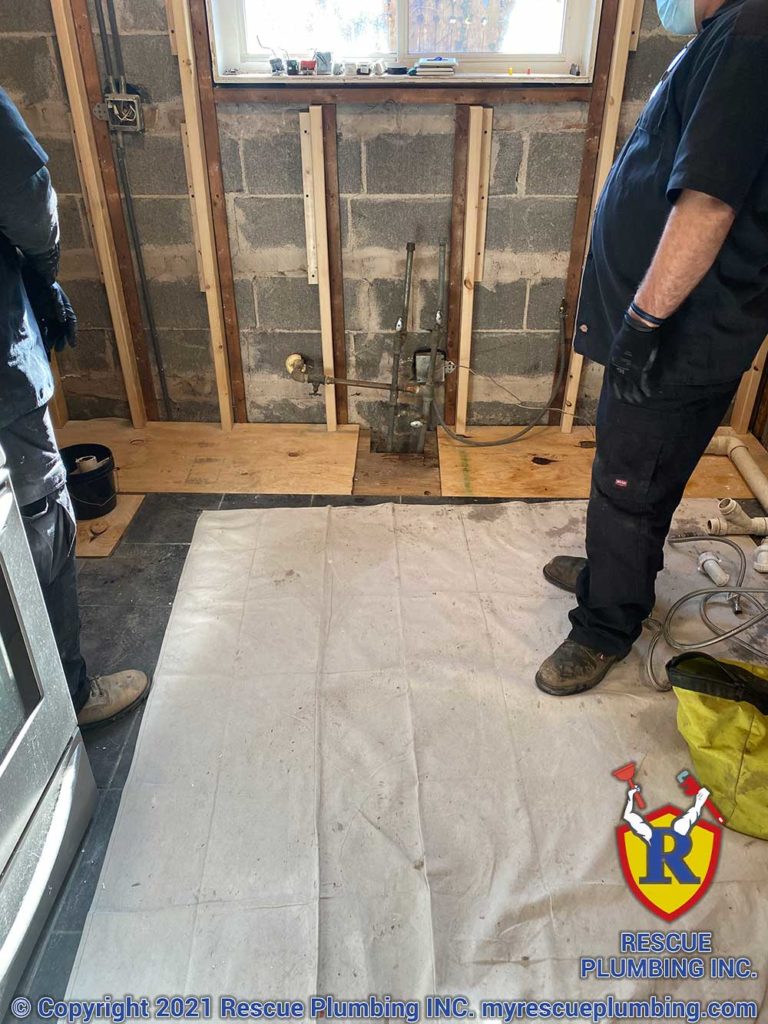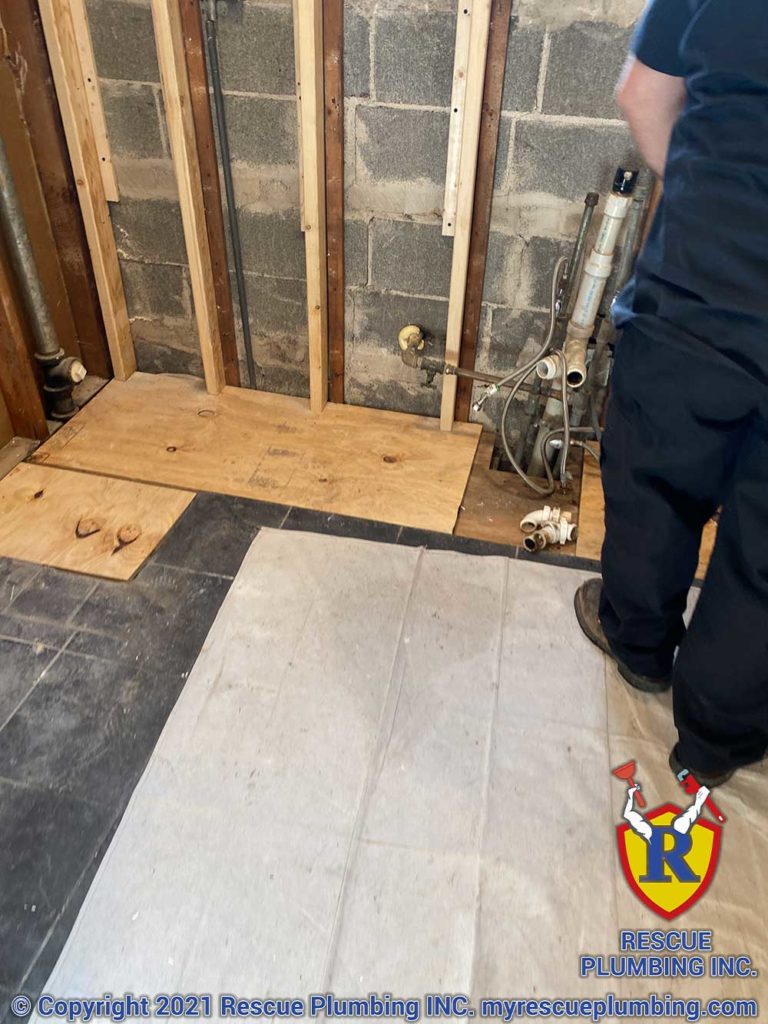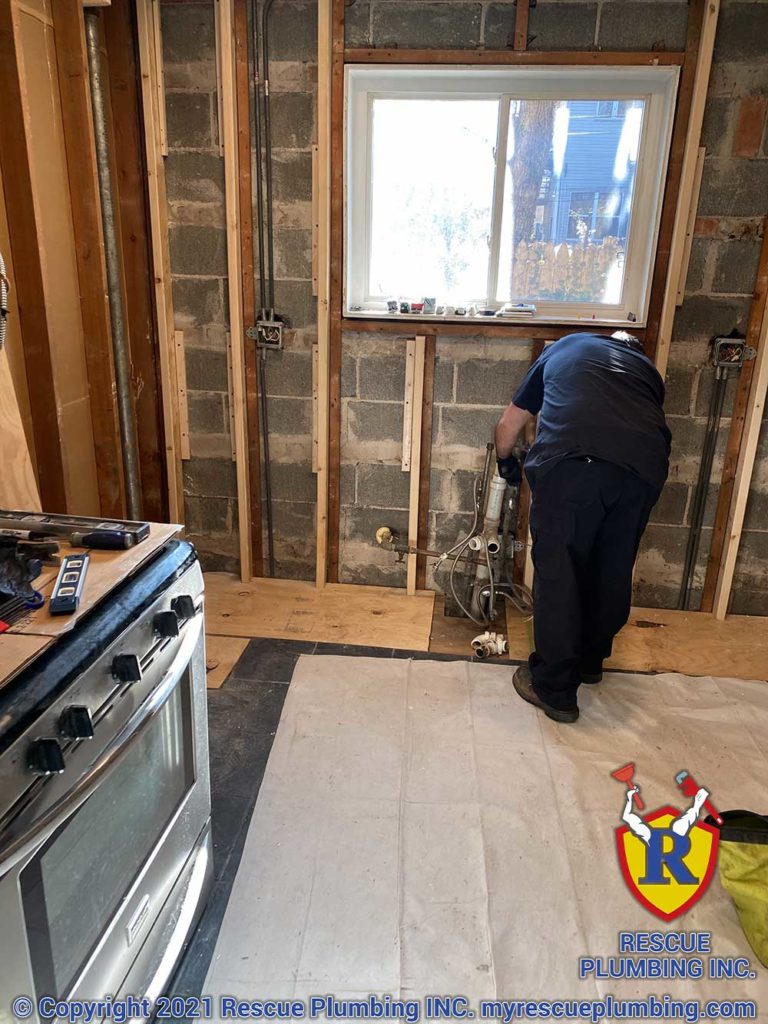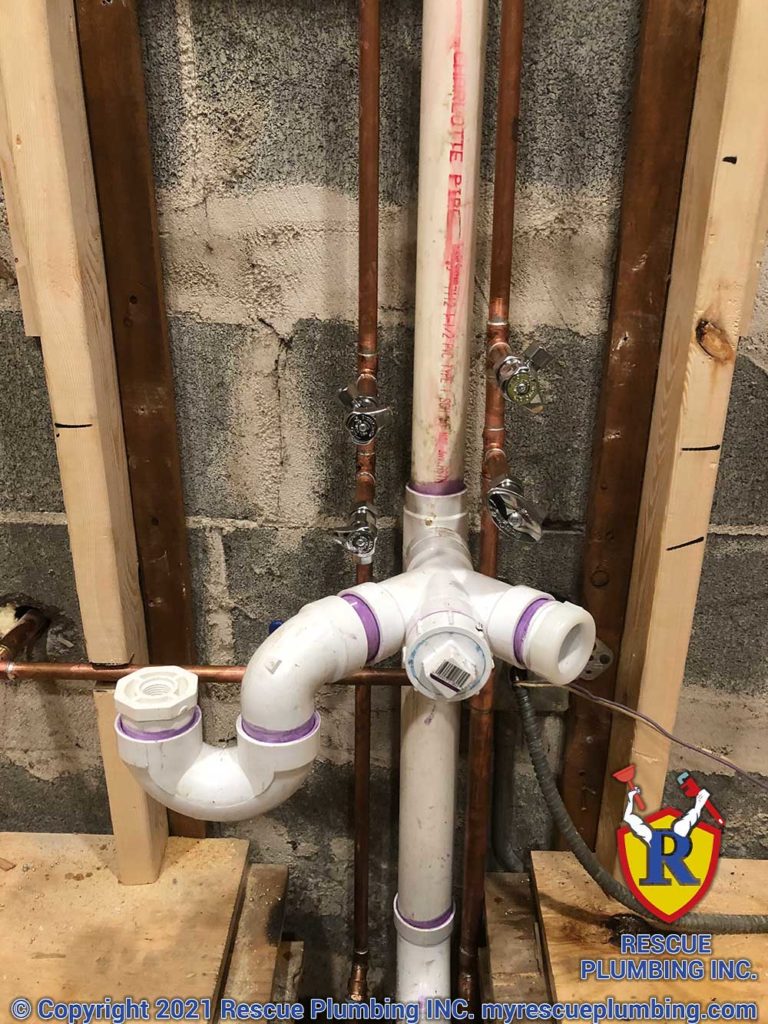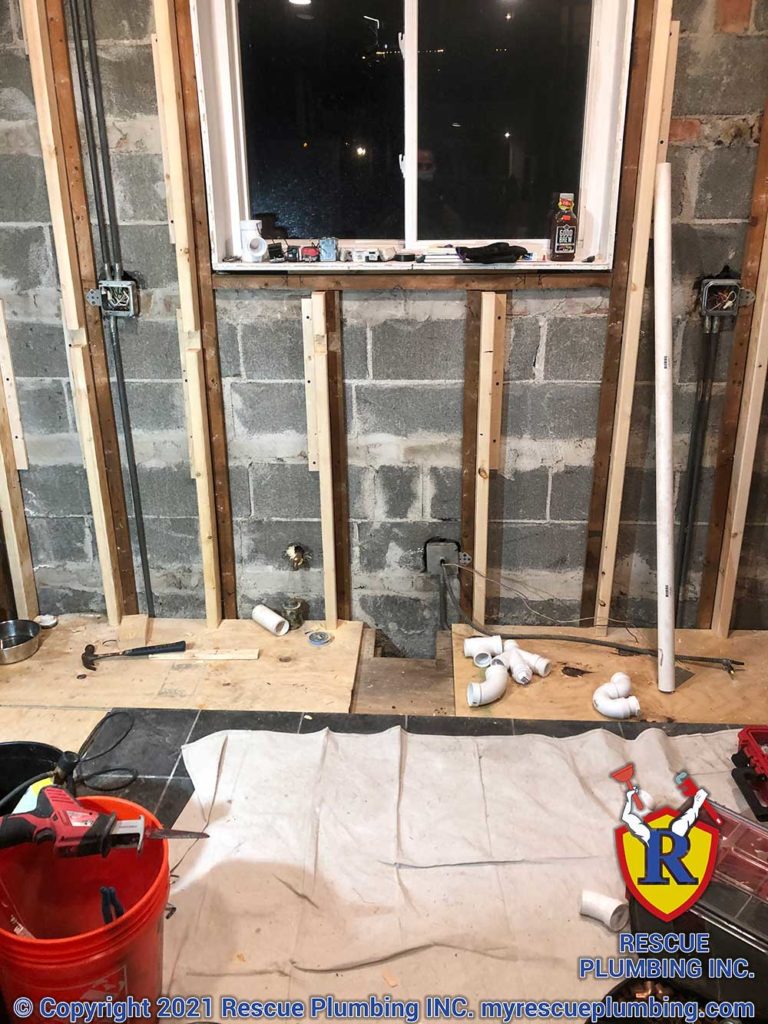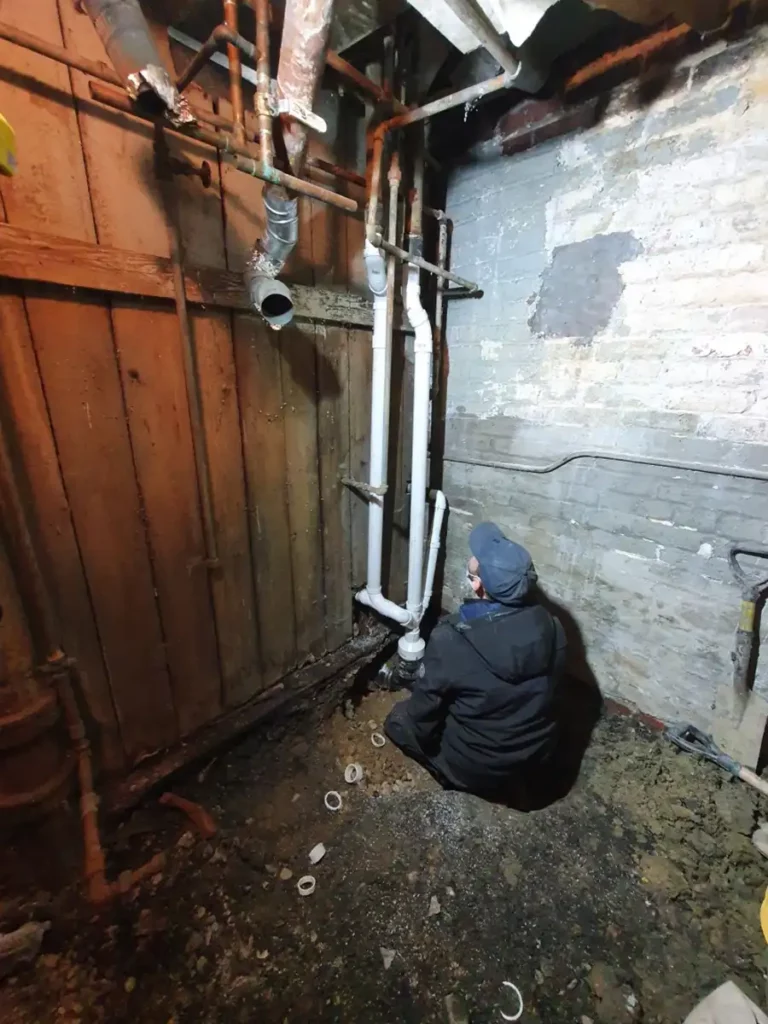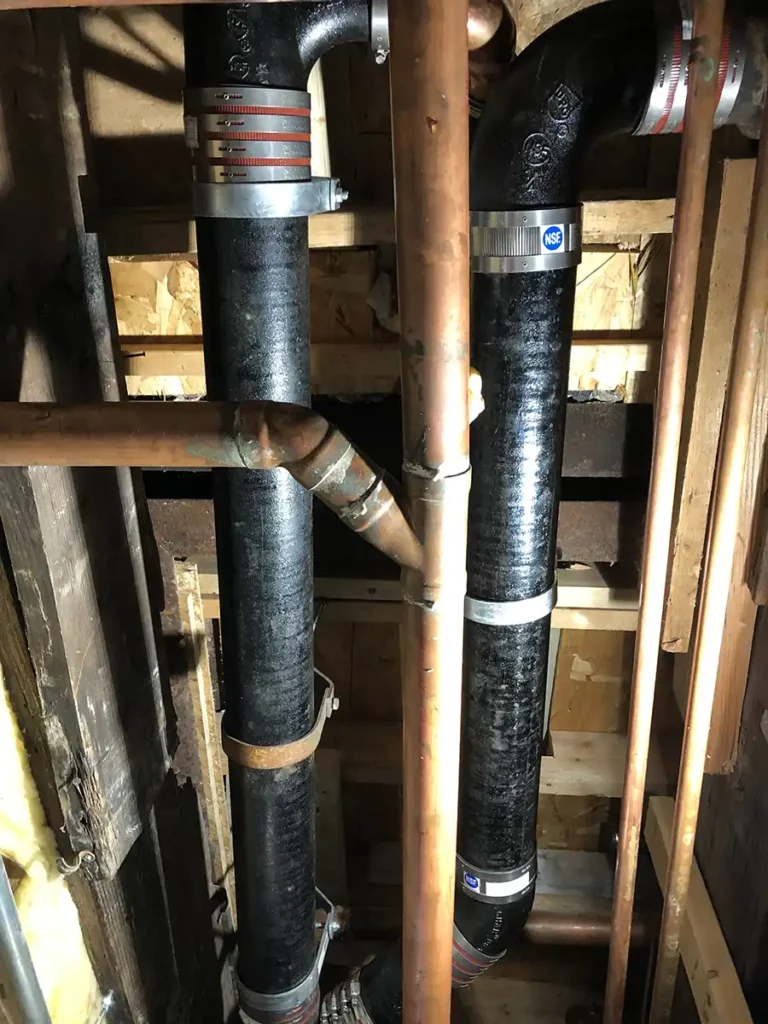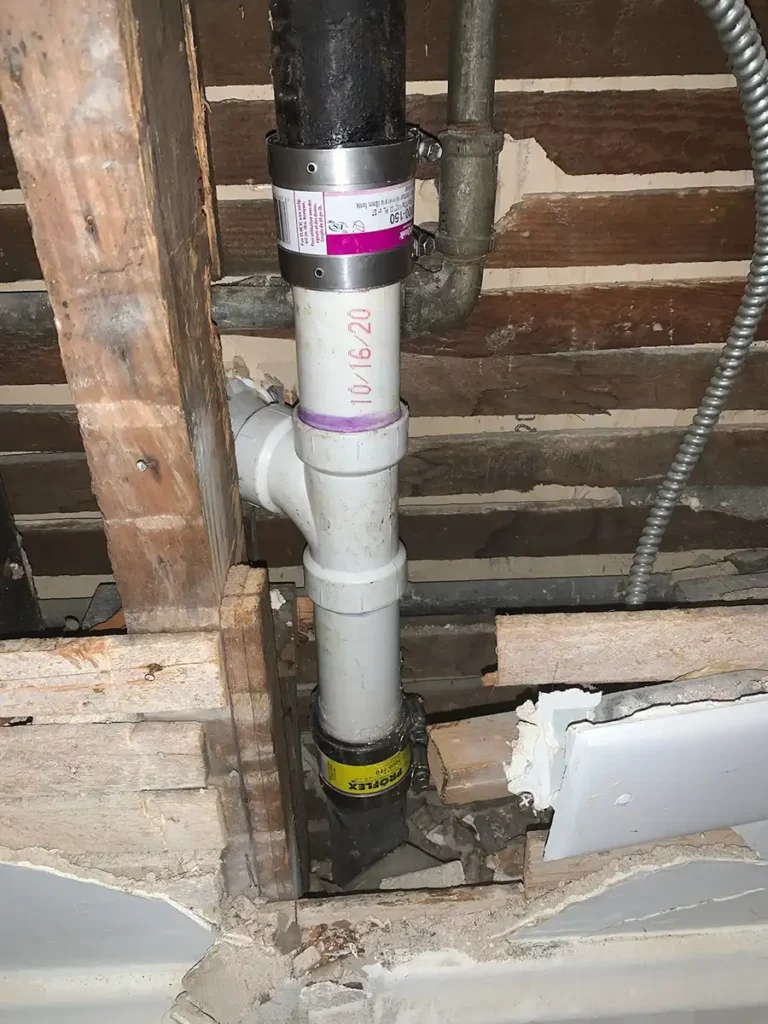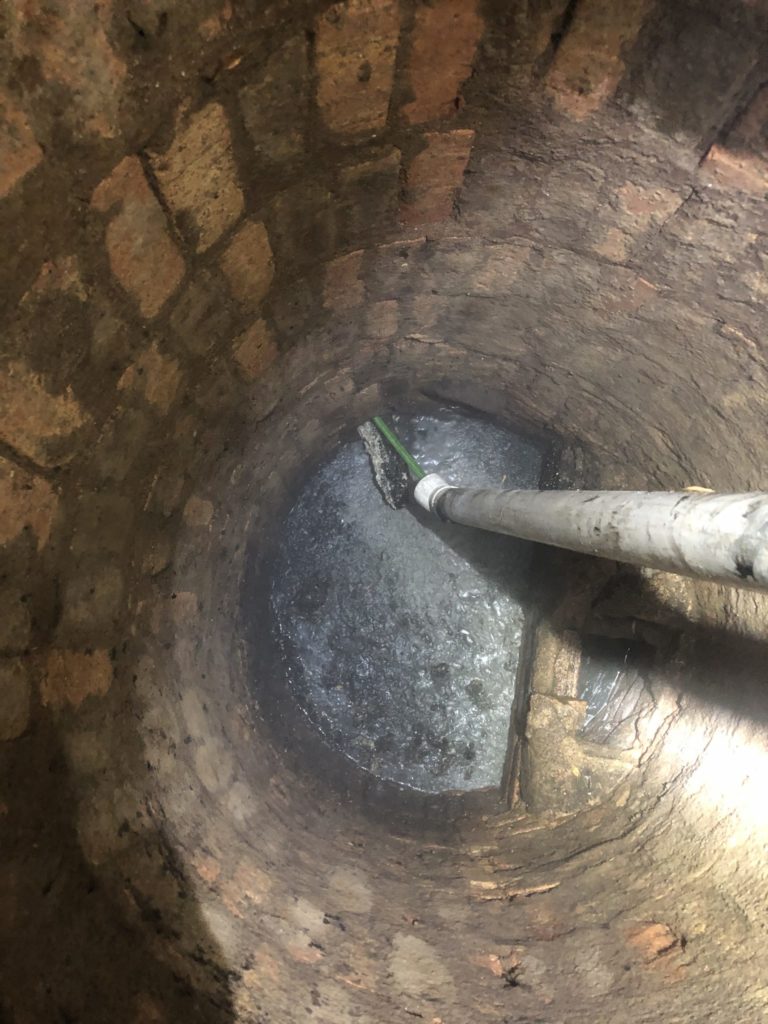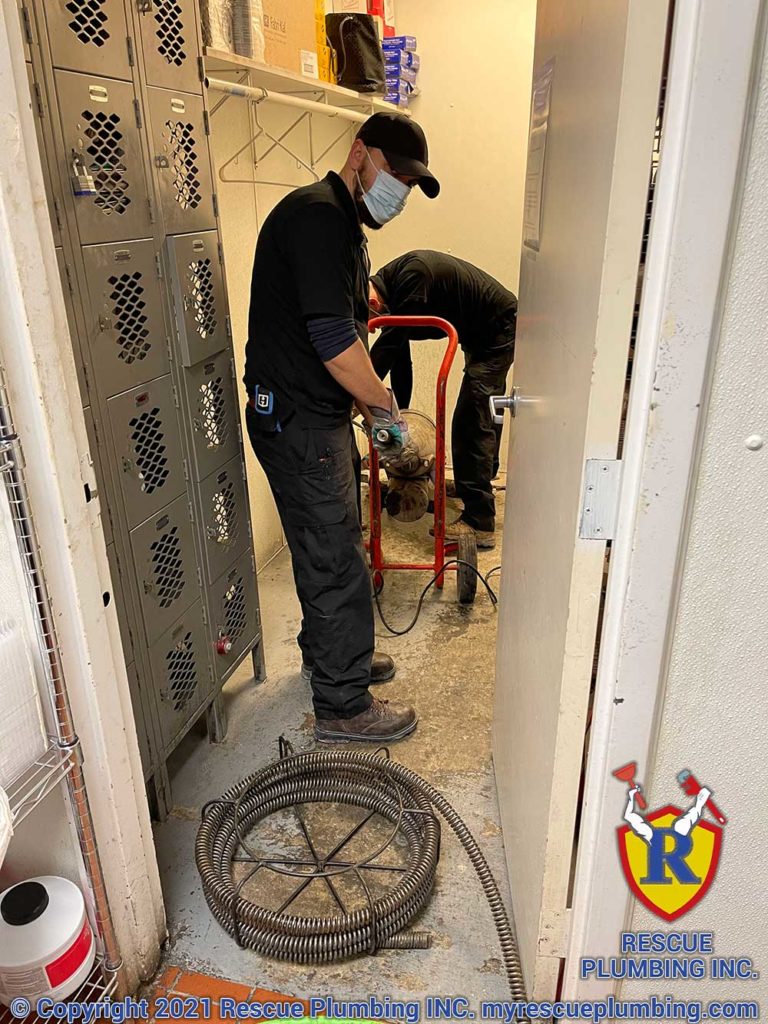Flooded Kitchen: Kitchen Drain Repair Logan Square Chicago Neighborhood
If you have drain lines that back up, it can be a nightmare to clean!
Kitchen backups can be caused by garbage disposals that are full, kitchen backups from grease buildup, or large amounts of food waste.
The kitchen drains are where the water from your kitchen sink and appliances (like dishwashers and garbage disposals) flows out. So, if there’s backup, then your kitchen will flood.
Thankfully, our team of reliable plumbers at Rescue Plumbing will fix water leaks in Chicagoland’s many neighborhoods!
Read on to learn what happened to this Logan Square resident and their flooded kitchen. In this article, we will also talk about what you can do if your kitchen drain is in need of repair.
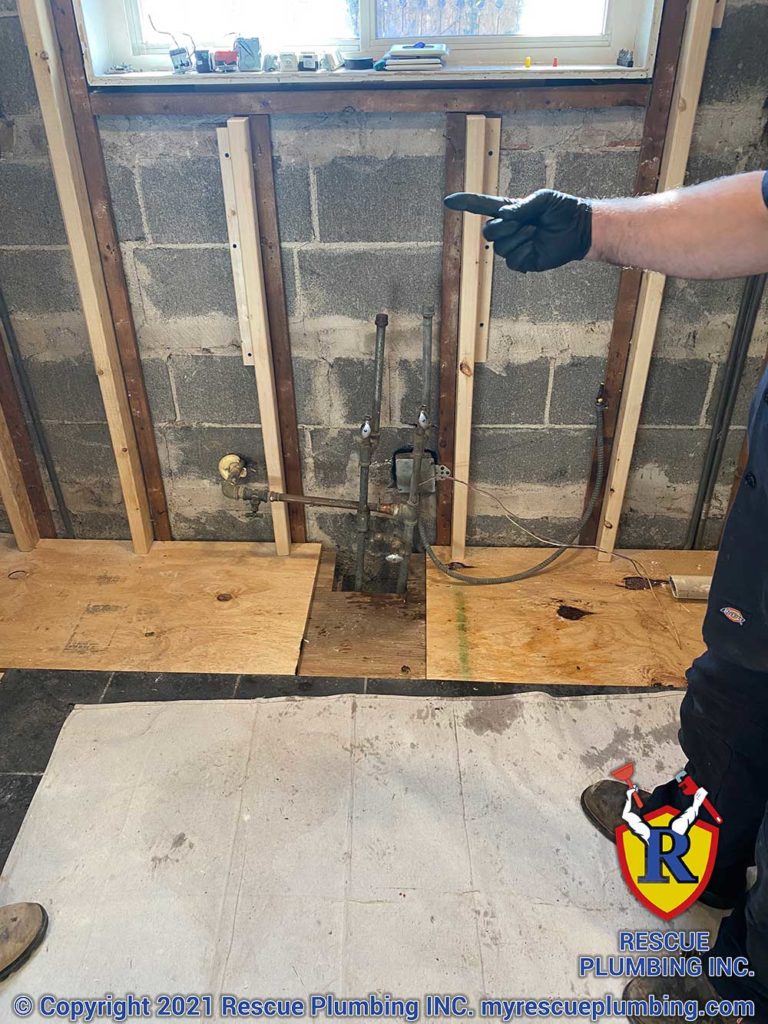
Logan Square Chicago Drainage Repair
Rescue plumbing received a call for a job at a house in the Logan Square neighborhood of Chicago. The homeowner was trying to remodel the kitchen himself.
Unfortunately, his kitchen flooded because the kitchen line had backed up.
What is a kitchen drain?
A kitchen pipe connects the kitchen to the main sewer line. The pipe collects any dishwater or food leftovers.
It transports them through a series of pipes underground to their final destination, the sewer system.
It is important to maintain your kitchen drain in order to keep water from backing up. Unfortunately, this customer was not mindful of what was thrown down the drain.
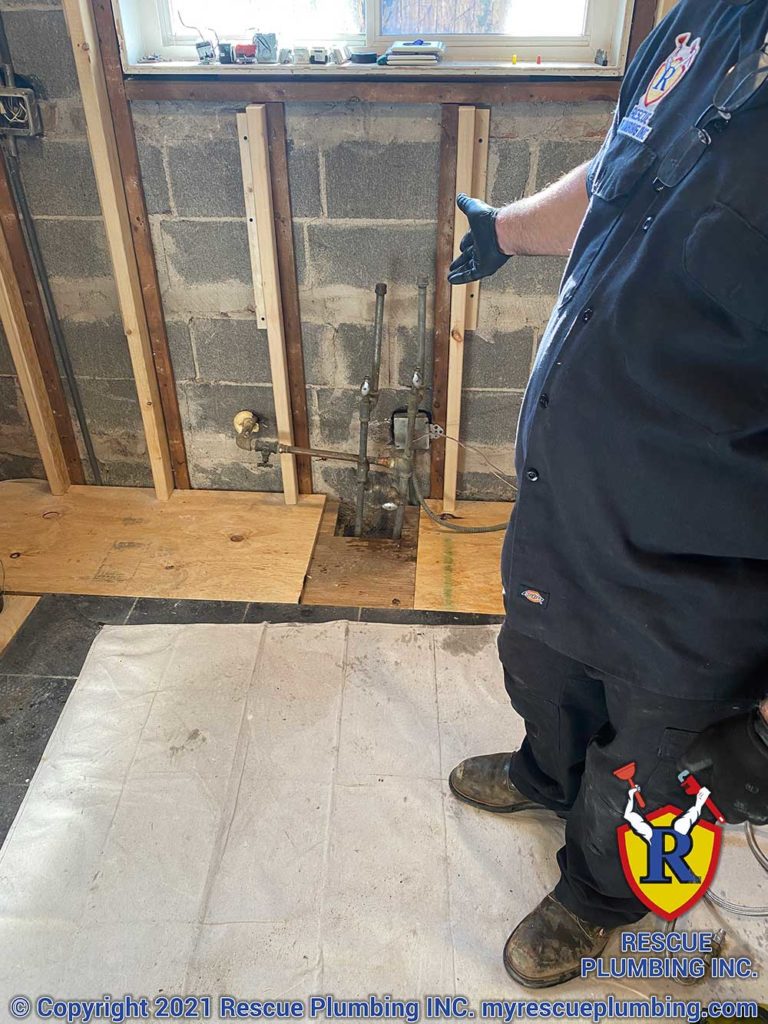
Debris back up
The homeowner let us know that the previous owner had installed a cheater vent in the wall. The vent eventually wore out causing the backup.
The kitchen line backed up and flowed out of the cheater vent which flooded this customer’s kitchen.
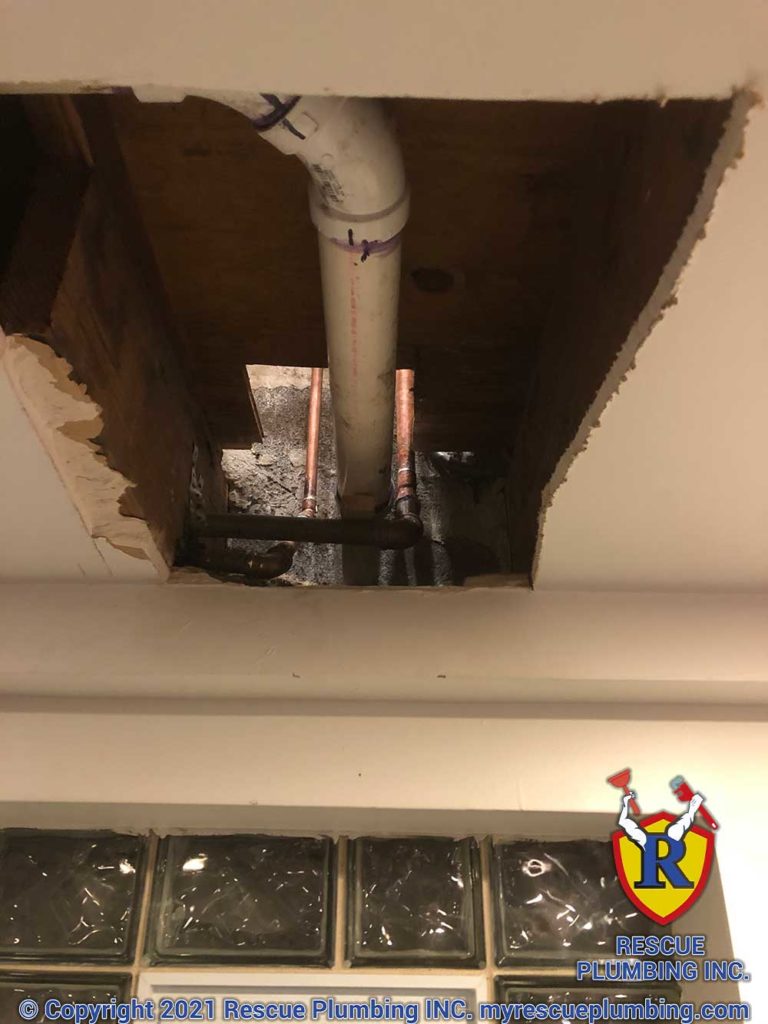
Replacing the drain
To avoid the kitchen line backing up into the heater vent, our plumber properly connected the vent to an original existing kitchen stack vent. This would avoid backups in the future.
In addition, the plumber also ran new drainage piping and water lines to the sink to ensure the customer no longer had any old or damaged piping.
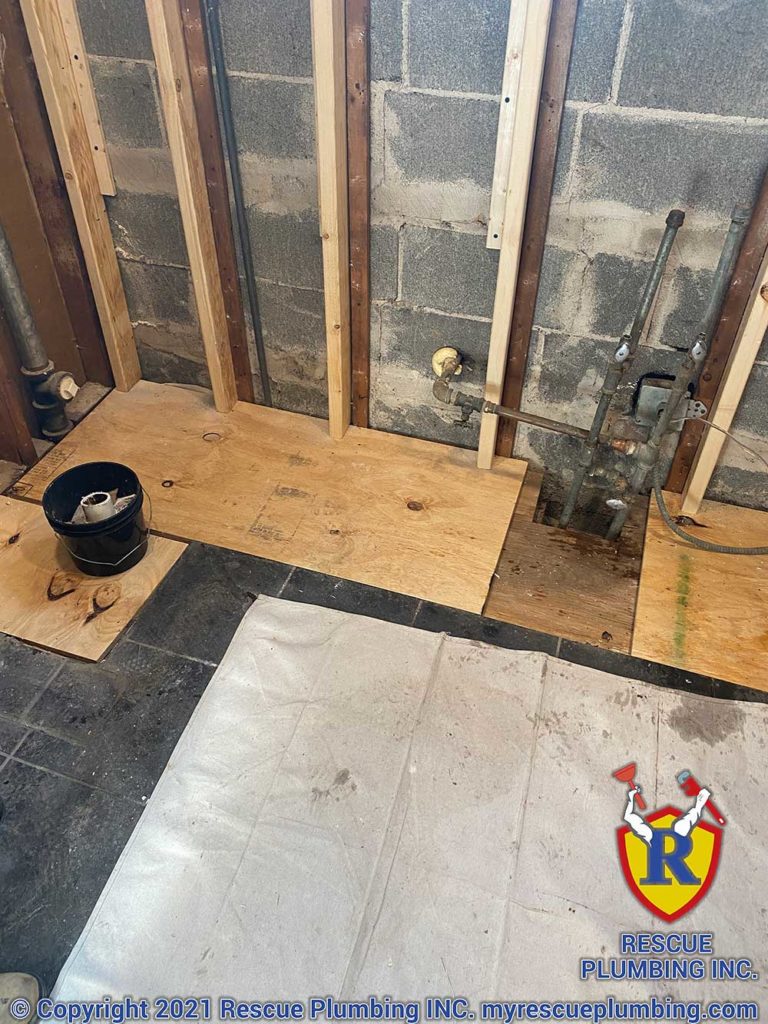
Problem Solved!
The drainage flow had been restored after all the needed repairs were complete.
The customer was now alleviated that they would no longer experience a flooded kitchen as a result of backups.
They now will definitely keep in mind the tips the plumber suggested to avoid any problem like this in the future.
We were proud to have come to the rescue!
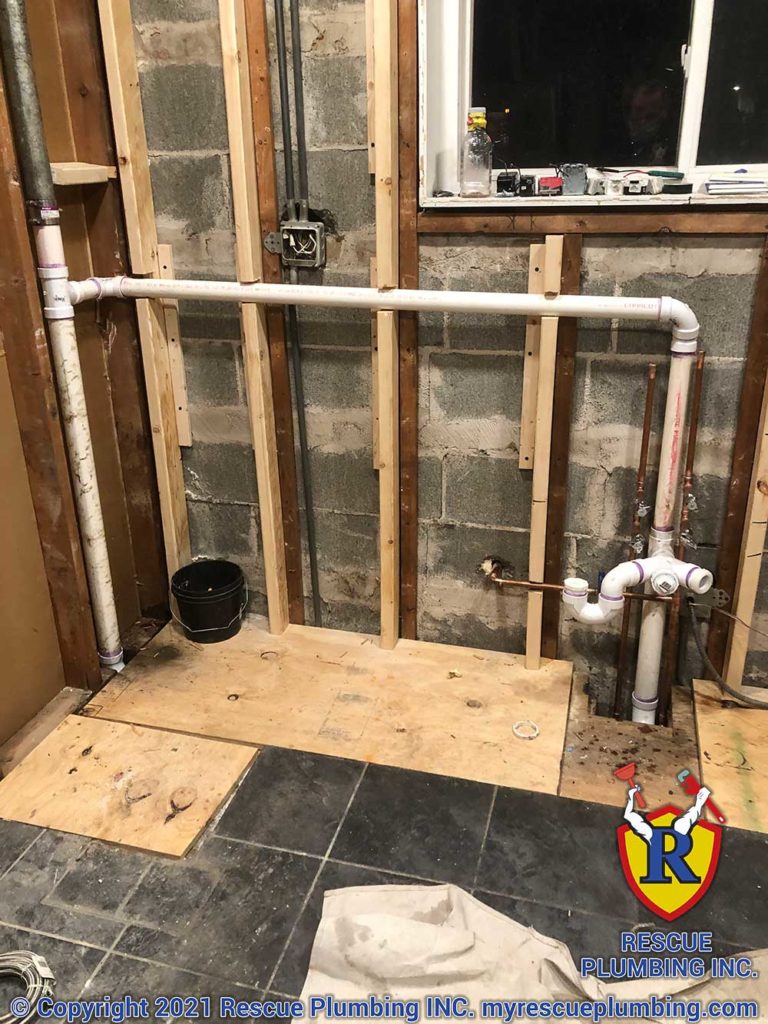
Signs to look out for
While you may feel worrisome knowing your drain may potentially have a blockage or need repairs, there are some measures you can take to avoid complications.
Be on the lookout for the following:
Clogs
Blockages are often caused by waste that is not easily broken down by the water when disposed of, like grease. Be cautious about what type of material is disposed of.
Never let a blockage go unnoticed. If you have a blockage, it is best to remove it right away. You can begin by using drain-o, but be cautious this can corrode your pipes over time.
A safe alternative would be to contact plumbers. We will remove the blockage quickly and with no damage at all to your drain.
Rust
Look for rust build-up in the drain pipes, located on the bottom of the kitchen sink. Rust is often an indication that the pipes are corroding which can disrupt the flow of the drainage.
Avoid using harsh chemicals when cleaning the sink or attempting to remove a blockage yourself. Cleaning solutions are the most common cause of corrosion in pipes.
Leaks
You hear water running from the kitchen when it isn’t in use is a sign that the drain might have a leak.
Also look for uneven, wet spots on your kitchen floor that don’t seem to go away after cleaning them or you notice a bad smell coming from under the sink.
Leaks are an indication of corrosion or a clog. Do not let leaks go unnoticed or the problem will worsen.
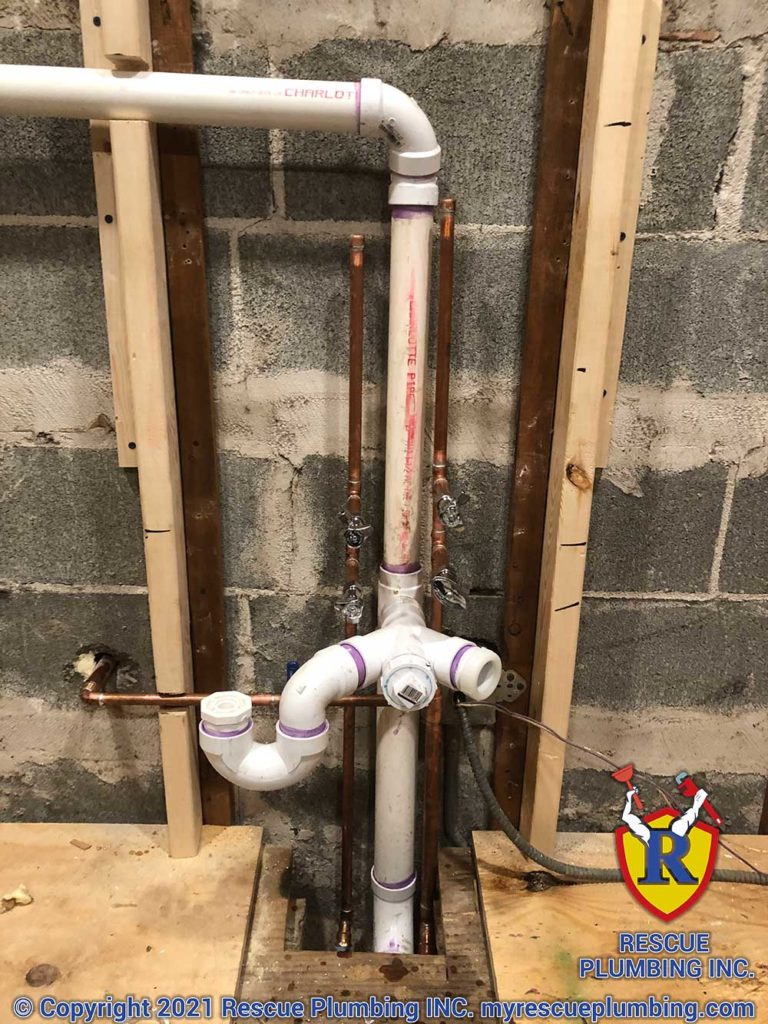
How to fix a clogged sink drain
We all know a clogged sink isn’t fun and can be a hassle to repair, but it’s never too late to fix it!
While these are some tips that have proved effective, they may not always function.
If these tips do not work, it is then time to contact us and have a professional assess the situation.
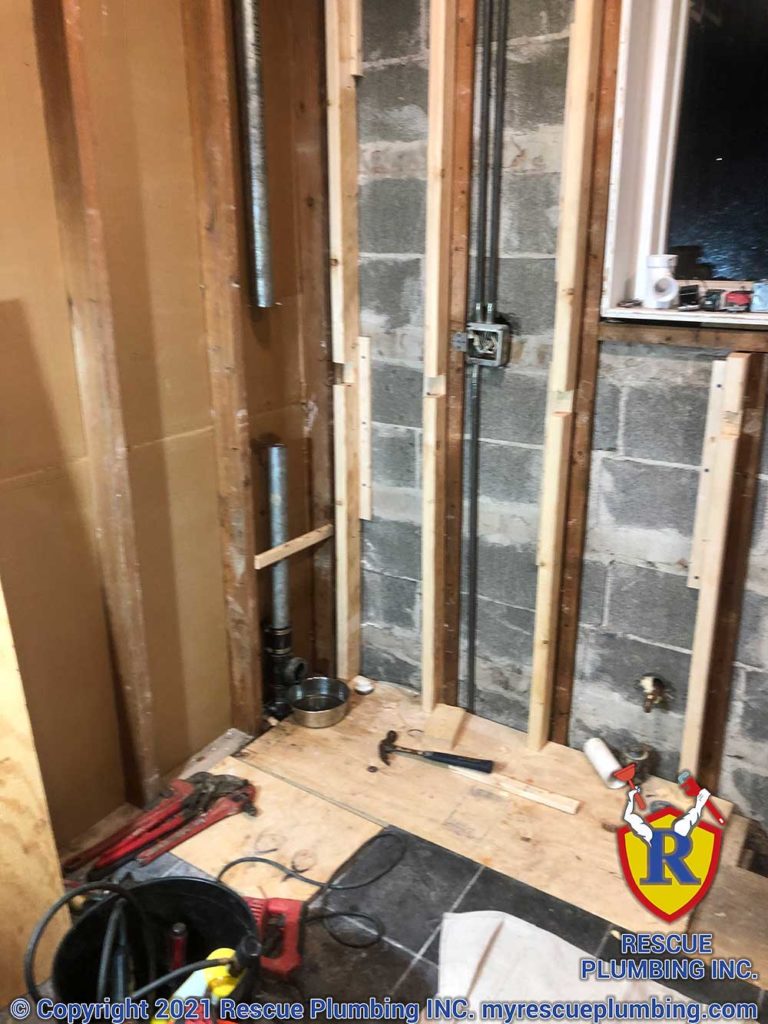
Tips on how to prevent future clogs
No grease
Do not pour grease down the kitchen sink. Grease will solidify and create blockages in the future.
No chemicals
Avoid using chemicals on kitchen garbage disposals, they can corrode pipes over time causing clogs to form in kitchen sinks or kitchen lines. (example of chemical is bleach)
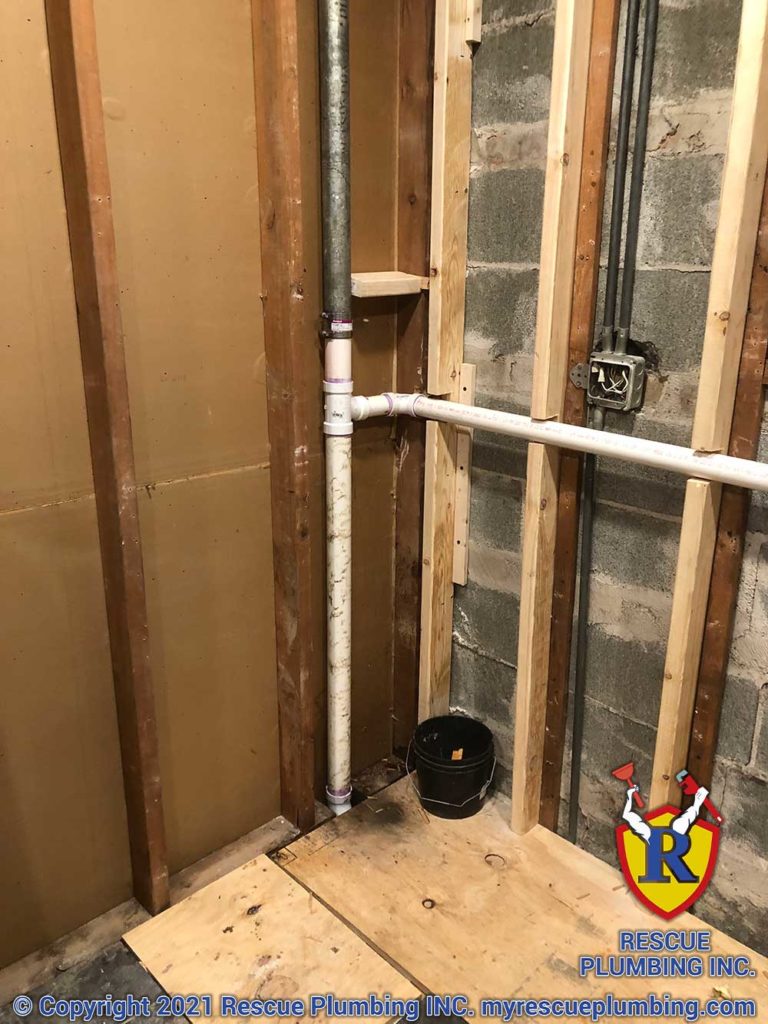
Be mindful of what you dispose
Do not use the kitchen sink for food disposal, kitchen sinks are meant to be used only for washing dishes and hands after cooking.
Avoid putting large quantities of any type of material in the kitchen line as this will increase the chances that it will clog up your kitchen drains over time.
Regular maintenance
Running hot water on a daily basis after use is a good way to keep drains unclogged. Fill up your sink once a week and then let all the water go with the faucet running.
This will create pressure pushing any solids into the main sewer line where the diameter is larger and is less likely to clog.
Using a safe degreaser cleaner can clean the drains with no damage. There are products out there that use natural citrus acid to break down grease.
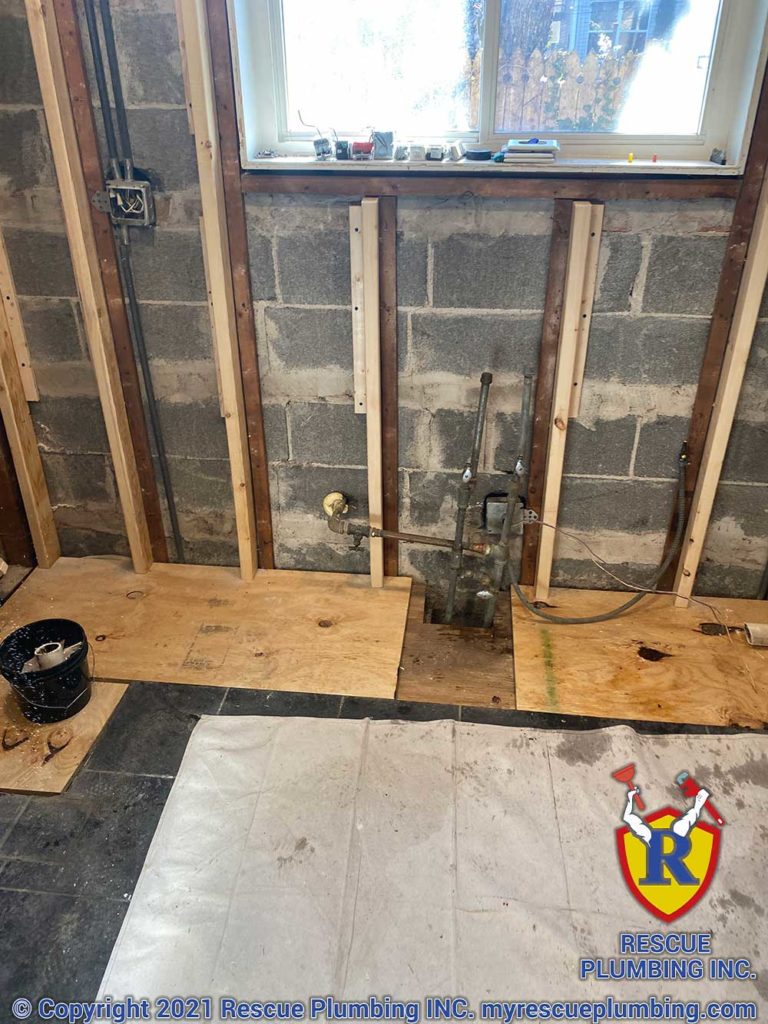
To the rescue!
Drain experts
If you keep experiencing clogs throughout your home, maybe it is time to call a plumbing technician!
Here at Rescue plumbing, we specialize in kitchen line cleaning!
Our technicians are highly skilled and qualified professionals who will be able to diagnose any problems or blockages that might occur on your Chicago property.
Remember do not let a clog go unnoticed. By acting fast you can save yourself the headache this customer experienced in having to deal with a flooded kitchen.
Free Estimates
We offer free estimates Monday through Saturday between the hours of 9 am and 5 pm. We can help you with any and all plumbing problems.
We are located in Chicago, Il, and service all Chicago neighborhoods and northern suburbs. Contact us now at (773)-799-8848 to schedule your free estimate today! To the rescue!


